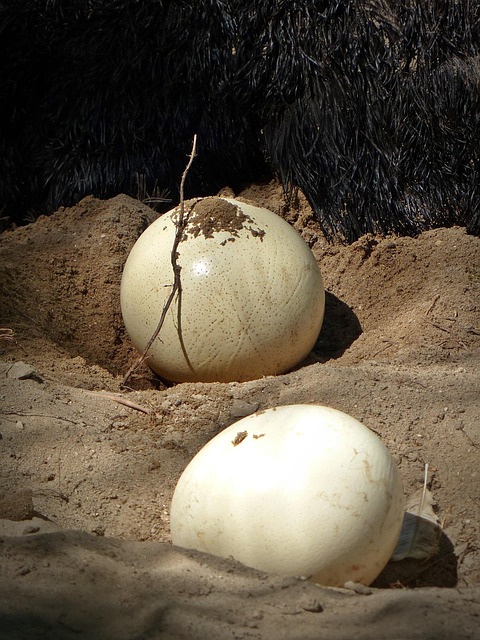Aspiring parents facing fertility challenges due to low egg quality can find hope through using donor eggs, a strategy that significantly improves conception chances, especially for older individuals or those with medical issues. Overcoming this hurdle involves a careful selection process of egg donors based on medical criteria and personal preferences, fostering compatibility and the desired family dynamic. The article "Overcoming Low Egg Quality with Donor Eggs: Navigating the Journey" explores this process, emphasizing matching, communication, legal considerations, and ethical guidelines to build a supportive relationship crucial for treatment success and family well-being.
“Overcoming low egg quality with donor eggs is an inspiring journey towards building families. This comprehensive guide navigates the intricate process of finding the perfect egg donor, ensuring success and fostering supportive relationships. From understanding the impact of egg quality on fertility to navigating legal aspects, we explore essential considerations for a smooth transition. Learn how to match donors with families, making each step meaningful. Embrace this transformative path to parenthood.”
Understanding Egg Quality and Its Impact on Fertility
Many aspiring parents navigate the complex journey of building their families, often facing challenges related to fertility. A significant factor in this process is understanding egg quality and its profound impact on fertility potential. Eggs, as the source of genetic material for a new life, undergo a delicate maturation process that ensures their viability. However, factors such as age, health conditions, and lifestyle choices can contribute to low egg quality, which may result in reduced fertility or even infertility.
Overcoming low egg quality with donor eggs is a valuable option for those seeking parentalhood. By utilizing eggs from a donor, individuals and couples can enhance their chances of successful conception. Donor eggs offer a fresh perspective on fertility challenges, as they introduce high-quality oocytes that have been carefully selected or donated from healthy young women. This approach can be particularly beneficial for older individuals or those with medical conditions affecting egg production, enabling them to explore parenthood without the limitations posed by low egg quality.
The Process of Donor Egg Selection: What to Consider
Choosing a donor egg is a significant step in building your family, especially if you’re facing challenges with low egg quality. It involves careful consideration to find the right match for your specific needs. Start by understanding your options and the criteria that make an ideal donor. Look into the donor’s medical history, age, and any genetic screening results to ensure compatibility and minimize potential risks.
Additionally, consider the emotional aspect of this decision. Some individuals seek donors with similar traits or backgrounds to foster a sense of connection. Others prioritize anonymity for privacy. Overcoming low egg quality with donor eggs is not just about biological factors; it’s also about finding the perfect balance between medical suitability and personal preferences to create your desired family dynamic.
Matching Eggs with Families: Building a Supportive Relationship
Finding the right egg donor is a crucial step in navigating the complexities of fertility challenges, especially when low egg quality is an issue. In these cases, overcoming low egg quality with donor eggs becomes a viable solution for many families. The process involves careful matching between potential donors and recipient families to ensure compatibility and build a supportive relationship.
Building a strong connection is essential for the success of the treatment and future well-being of the family. This includes open communication, understanding each other’s expectations, and addressing any concerns or questions that may arise. A supportive relationship between donor and family can make all the difference in navigating this journey, fostering an environment of trust and care as they work together to create a new life.
Navigating Legal and Ethical Aspects for a Smooth Journey
Navigating the legal and ethical landscape is a crucial step in ensuring a smooth journey when considering donor eggs as part of your family-building plans. Understanding the regulations surrounding egg donation varies by region, it’s essential to consult with legal experts who can guide you through the process and ensure compliance. This includes thoroughly reviewing donor agreements, comprehending the rights and responsibilities of all parties involved, and addressing potential legal complexities related to inheritance or medical issues that may arise in the future.
Additionally, ethical considerations play a significant role. It’s important to find a donor who aligns with your values and lifestyle, creating a genuine connection beyond just biological contribution. This transparency fosters trust and helps overcome any psychological barriers for both parents and the donor. Remember, when approached ethically and legally, overcoming low egg quality with donor eggs can open doors to family creation, providing hope and joy for many aspiring parents.
Overcoming low egg quality with donor eggs is a significant step towards building families. By understanding the intricate process, from selecting the right donor to fostering a supportive relationship, future parents can navigate this journey with confidence. Remember that each family’s path is unique, and with proper guidance, achieving fertility goals becomes more attainable. This comprehensive approach ensures a smooth experience while considering both legal and ethical aspects, ultimately leading to happier outcomes for all involved.
